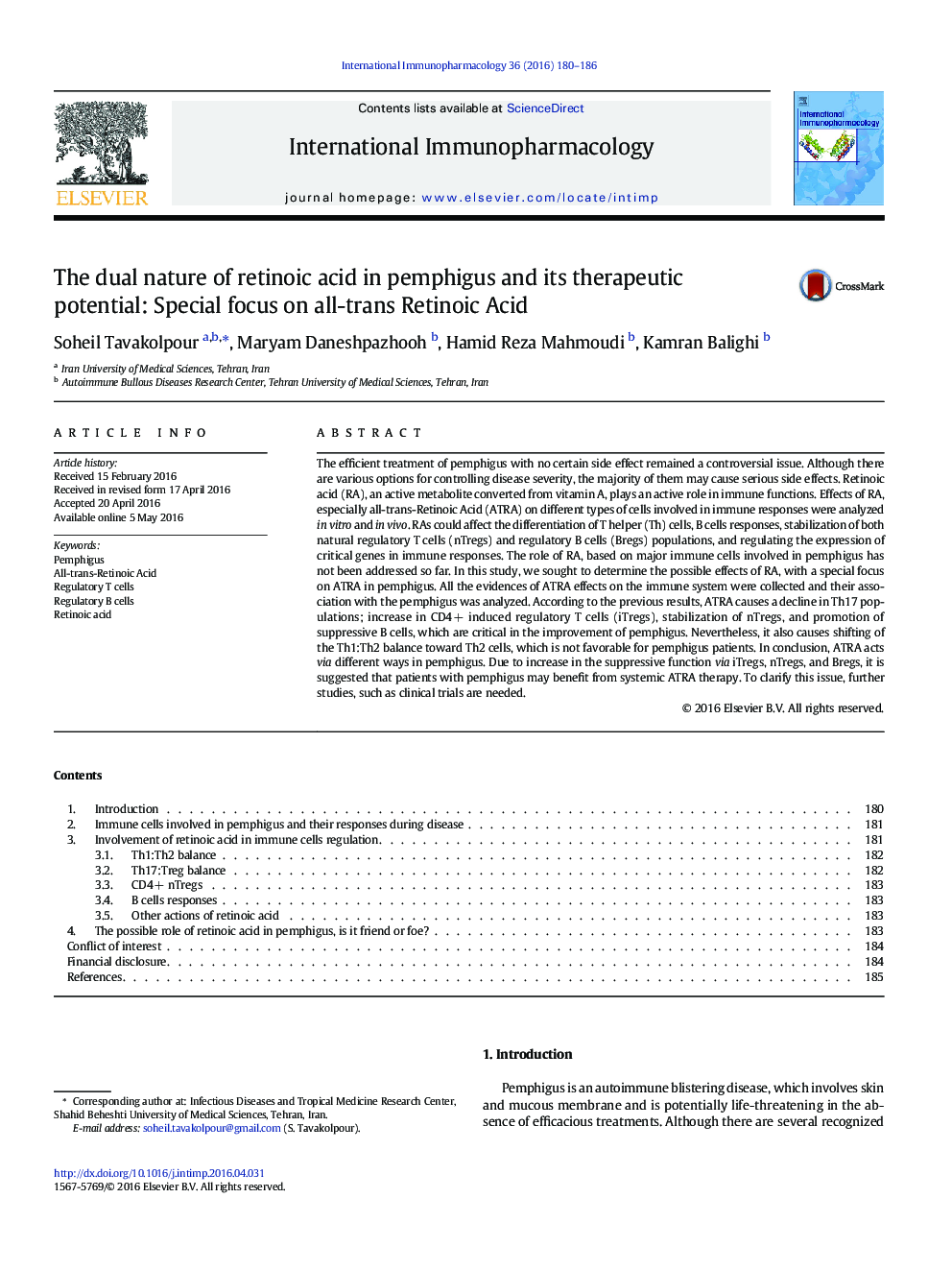| کد مقاله | کد نشریه | سال انتشار | مقاله انگلیسی | نسخه تمام متن |
|---|---|---|---|---|
| 5831997 | 1559754 | 2016 | 7 صفحه PDF | دانلود رایگان |
- All-trans Retinoic Acid (ATRA) affects different cells involved in autoimmune diseases.
- In pemphigus patients, regulatory T cells do not function properly.
- ATRA improves regulatory T cells functions and leads to the effector T cells suppression.
- Patients with pemphigus may benefit from systemic ATRA therapy.
The efficient treatment of pemphigus with no certain side effect remained a controversial issue. Although there are various options for controlling disease severity, the majority of them may cause serious side effects. Retinoic acid (RA), an active metabolite converted from vitamin A, plays an active role in immune functions. Effects of RA, especially all-trans-Retinoic Acid (ATRA) on different types of cells involved in immune responses were analyzed in vitro and in vivo. RAs could affect the differentiation of T helper (Th) cells, B cells responses, stabilization of both natural regulatory T cells (nTregs) and regulatory B cells (Bregs) populations, and regulating the expression of critical genes in immune responses. The role of RA, based on major immune cells involved in pemphigus has not been addressed so far. In this study, we sought to determine the possible effects of RA, with a special focus on ATRA in pemphigus. All the evidences of ATRA effects on the immune system were collected and their association with the pemphigus was analyzed. According to the previous results, ATRA causes a decline in Th17 populations; increase in CD4Â + induced regulatory T cells (iTregs), stabilization of nTregs, and promotion of suppressive B cells, which are critical in the improvement of pemphigus. Nevertheless, it also causes shifting of the Th1:Th2 balance toward Th2 cells, which is not favorable for pemphigus patients. In conclusion, ATRA acts via different ways in pemphigus. Due to increase in the suppressive function via iTregs, nTregs, and Bregs, it is suggested that patients with pemphigus may benefit from systemic ATRA therapy. To clarify this issue, further studies, such as clinical trials are needed.
Journal: International Immunopharmacology - Volume 36, July 2016, Pages 180-186
